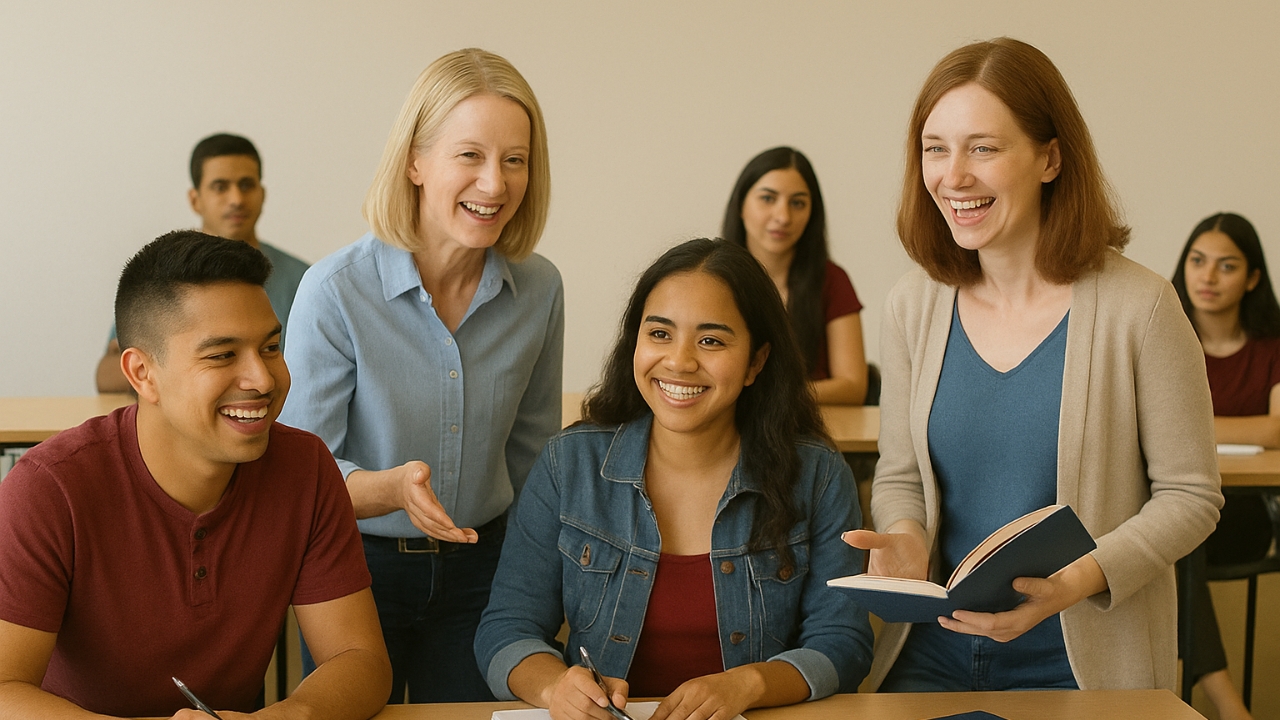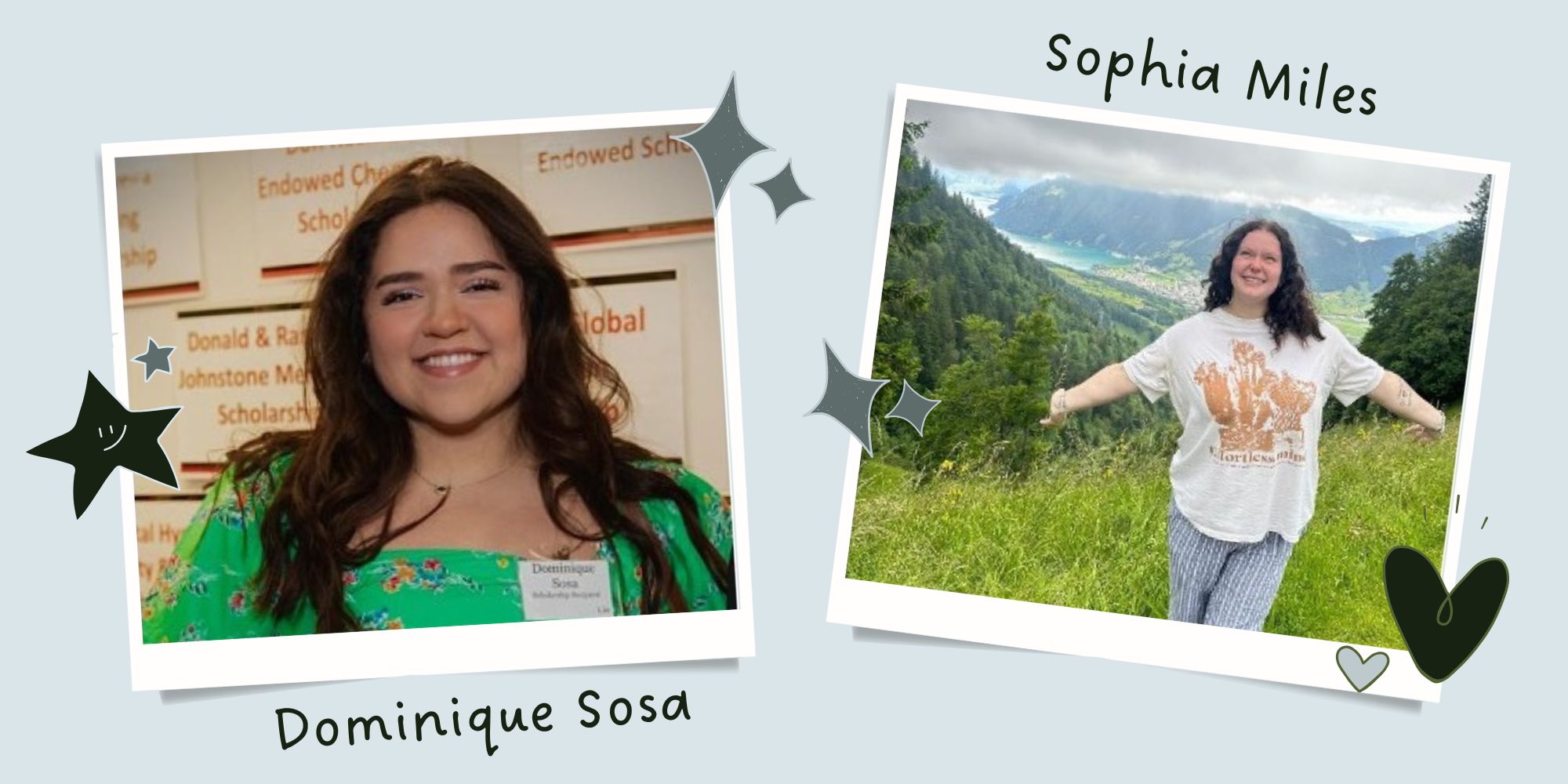
Connecting Cultures: The Impact of the Young Researchers Fellowship Program – University of Minnesota on English Language Education
- Posted by Odalis Clemente
- -
- 13-07-2025
- -
- Categories: News, English scholarships
In an effort to create opportunities for Ecuadorian students with strong academic aspirations, the Ecuadorian Development Research Lab (LIDE), in partnership with the University of Minnesota’s Center for Community-Engaged Learning, has implemented an innovative program that connects American volunteers with underprivileged, high-achieving students in Ecuador. This initiative is focused on English language instruction while not only strengthening students’ language skills, but also fosters a rich cultural exchange that transforms lives on both sides of the globe.
The program brings together final-year education students from the University of Minnesota—passionate about teaching and service—with Ecuadorian youth who dream of accessing international opportunities. Through weekly online English lessons, the volunteers help students prepare for exams like the TOEFL, a crucial step for those aspiring to study abroad. This initiative builds bridges of mutual understanding, where both the Minnesota volunteers and LIDE students learn about new cultures, perspectives, and ways of life.
What makes this collaboration unique is that it’s not just about teaching a language. It is a human, cultural, and professional exchange that leaves a lasting impact in both directions. For Dominique Sosa, an education student and one of the volunteers, this experience “.. has been a great learning opportunity.” In her words, “.. not only do the students improve their English, but I also learn to become a better teacher.” She highlights how the program has been a learning opportunity for both herself and her students. For her, the program not only boosts students’ language skills but also helps them apply English in various aspects of their lives, from academic to personal.
“This program has allowed me to practice essential skills for lesson planning and becoming a better teacher. I’ve also improved my Spanish and learned so much about Ecuadorian culture through the students I’ve met.”
— Dominique Sosa, University of Minnesota volunteer

Sophia Miles, another volunteer, sees this collaboration as a unique opportunity for LIDE students aspiring to become researchers. For Sophia, the program significantly impacts students’ academic goals as well as their personal development. “Connecting with students in Ecuador made me reflect on how to explain my culture and consider other ways of doing things,” she shares. Her involvement in the program came through her TESOL minor program, and she now deeply values the relationships she’s built.
“The University of Minnesota is a major research hub, and many LIDE students want to pursue this path. Learning English with native speakers not only helps with the language but also provides a cultural context that makes it easier to understand research texts in the future".
— Sophia Miles, University of Minnesota volunteer
Deysi Sanisaca, a University of Minnesota volunteer who is of Ecuadorian origin, brings a unique perspective to the program. For her, the program not only improves English skills but also fosters a deeper understanding of the language and its cultural context. Deysi emphasizes the personal enrichment she has gained: “I’m learning about the students’ lives, their dreams, and how they want to use English in their lives.” Her motivation for participating was twofold: her knowledge of Spanish and her desire to give back to her country of origin while learning more about Ecuador.
“This is a great opportunity for Ecuadorian students to connect with native speakers, gain confidence, and discover the differences between our countries.”
— Deysi Sanisaca, University of Minnesota volunteer
Voices from Ecuador: Testimonials from LIDE Students
LIDE students shared their insights. Tania Estefanía Chapa Barreto describes the experience as “enriching,” noting that “.. the practical activities and dialogue help us strengthen our ability to express ourselves correctly in English.” For her, the program is key to overcoming academic barriers: “Mastering English is essential for accessing updated knowledge and sharing research globally, which strengthens our preparation as researchers.”
“Interacting with the volunteers has helped improve my pronunciation and listening comprehension, giving me more confidence to communicate in formal settings. This program has motivated me to keep learning English, because I now see the language as a powerful tool for personal and professional growth.”
— Milena Raquel Escobar Erazo, LIDE student
Jean Carlos Muñoz García, who works directly with Dominique, praised her communicative approach. “Her enthusiasm and patience have motivated me to practice with more confidence,” he says. Jean Carlos sees interacting with native speakers as the most valuable part: “Receiving immediate feedback and getting familiar with different accents has been essential to improving my fluency.” For him, the program not only supports his studies but also opens doors to future job opportunities.
Alan Josue Del Rosario Ochoa highlights the program’s innovative approach as a key factor in his learning. “The ongoing activities and clear explanations of unfamiliar terms make the classes very practical and effective,” he says. Despite not having a strong foundation in English initially, Alan notes significant progress: “I’ve improved my communication and pronunciation, which allows me to express my ideas more clearly.” For him, the program is a valuable tool that aligns with his academic and professional goals by giving him access to content relevant to his interest in economics. “The weekly sessions, which explore topics related to our interests, make learning English motivating and personalized,” he adds.
Building Opportunities
The collaboration between LIDE and the University of Minnesota is a powerful example of how education and volunteerism can create lasting impact. Alonso Quijano Ruiz, Co-Director of LIDE and also a University of Minnesota PhD student, is very grateful to Professor Darren K. LaScotte, Coordinator of the TESOL minor program, who helped connect LIDE with University of Minnesota volunteers. Thanks to this connection, Ecuadorian students not only improve their English but also gain confidence and move closer to their goals of studying or working abroad. At the same time, the volunteers develop professional skills, expand their cultural horizons, and build meaningful connections.
LIDE and the University of Minnesota are planting more than just vocabulary or grammar—they are planting confidence, dreams, and the belief that by working together, we can open pathways to a fairer and more promising future. At LIDE, we are committed to nurturing this partnership and exploring new ways to empower our students through education.
To continue expanding our program and supporting more aspiring researchers in Ecuador, the ongoing support of University of Minnesota volunteers is instrumental. If this initiative inspires you and you want to learn more about how to support or participate in our programs, visit our website or contact us. Together we can continue transforming lives and building a future full of opportunities for all. Your commitment makes the difference!